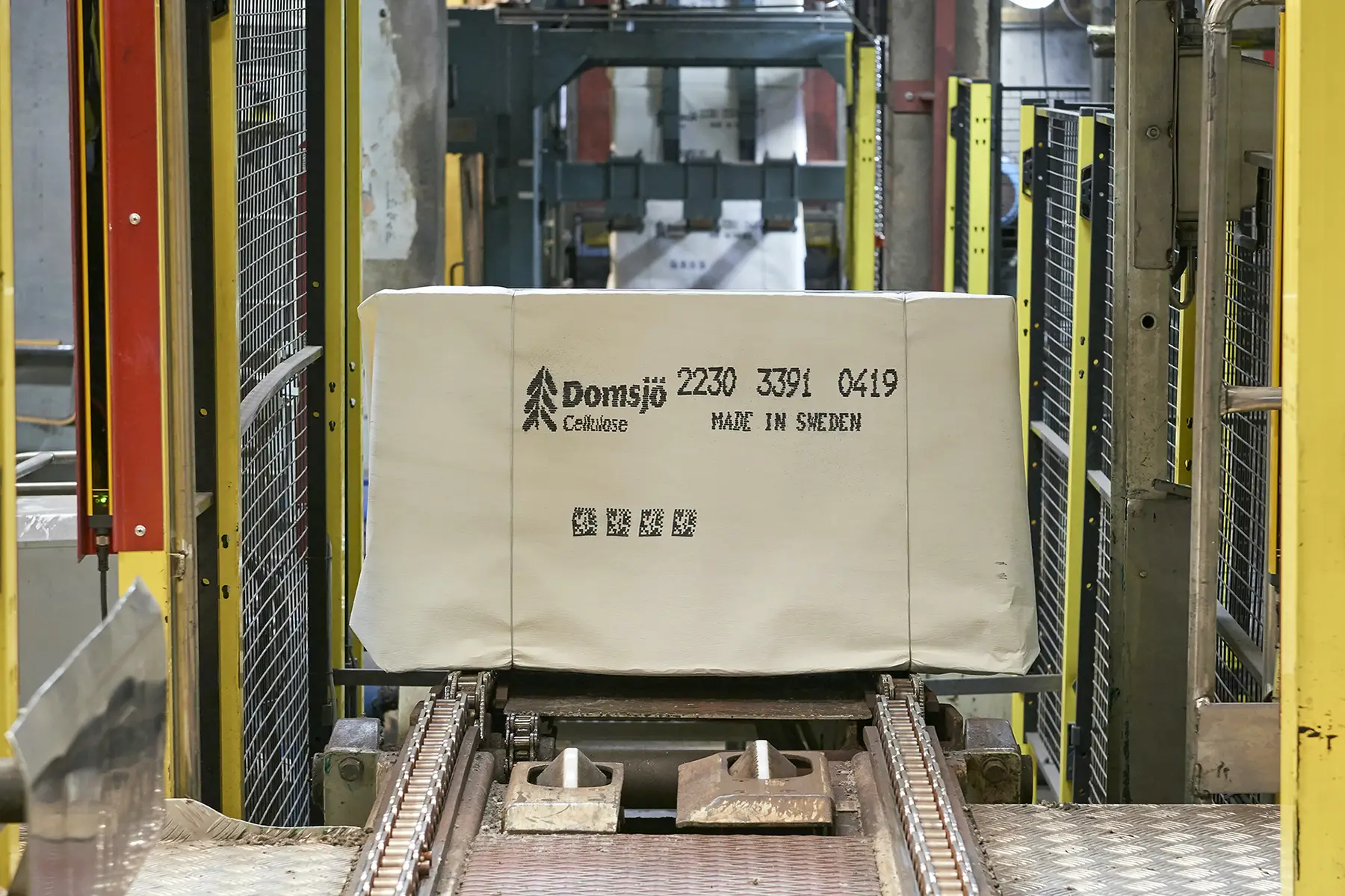Industrial and urban symbiosis in Örnsköldsvik
Where IUS enables so much more from wood.
Advantages
- Energy and Resource Efficiency
- Renewable Resources
- Innovation Capacity
- Fossil Resources
- Primary Resources
- CO2 Emissions
- Waste Generation
Overview
The Domsjö industrial area is located in Örnsköldsvik Municipality and has a long history of industrial production, with wood as the main raw material. Most of the processing companies in the area today have their origins in Mo och Domsjö AB and their original work with the sulfite process, ethanol production, and organic chemistry. Today, the actors in the area produce products such as ethanol, specialty cellulose, and chemicals. In addition to producing specialty cellulose as the core product, lignosulfonates and biogas are also produced.
The actors in the Domsjö industrial area have well-developed collaborations and exchanges in terms of energy, materials, and knowledge. In 2003, a collaboration between companies, academia, and public organizations was initiated under the name Processum. It was established to bring together various stakeholders and drive their ideas for the development of biorefineries. Key actors involved include Domsjö Fabriker AB, SEKAB, Övik Energi, Miva, Akzo Nobel AB, AGA, Domsjö Fiber, MoRe, Processum, Eurocon, and Umeå University.
Highlights
A prominent feature of the Domsjö network is its strong profile in terms of knowledge and competency synergies. For example, there is the Biorefinery Demonstration Plant, a research facility for the development of biochemical biorefinery processes, which is jointly operated by staff from Domsjöbruket, Processum, and SEKAB, while Eurocon has been involved in developing software for its operation. Processum plays a central role in developing and coordinating research and development projects that can increase efficiency, reduce waste production, and provide opportunities to introduce new products.
Driving forces and enablers
On a local and organizational level, the shared history of the companies in the area is considered a key factor in the development of this network. Most of the companies in the area were once part of a single company, and the personal networks and shared culture from that time strengthen trust between the actors, fostering symbiotic relationships. There is also a high level of openness regarding the exchange of information and knowledge, made possible by the strong trust among the actors. The small municipality provides opportunities for employees in the industrial park to meet and interact during their free time, likely contributing to strengthening trust. Access to infrastructure within the Domsjö industrial area, such as the district heating network, has been an enabler, as has access to research, pilot, and demonstration facilities.
Another important enabler is Processum, which, by serving as a neutral platform where other actors meet on equal terms, can stimulate collaborations and find new common solutions. Processum also has the capacity to discover and highlight collaboration opportunities that may be overlooked by individual actors. The diversity within the network and the accessibility for smaller companies with specialized expertise (e.g., Eurocon, PulpEye, MoRe) have been important for the development of local synergies. Through the diversity of companies and the presence of Processum and Övik Energi, the reliance on the previously dominant anchor, Domsjö Fabriker, has decreased, allowing for more types of collaborations to be possible.

